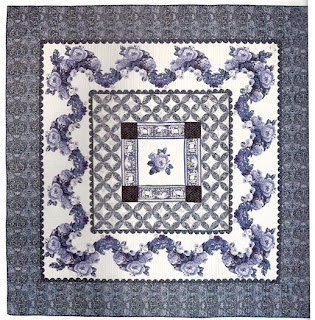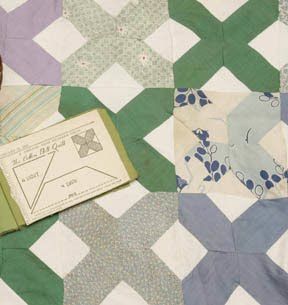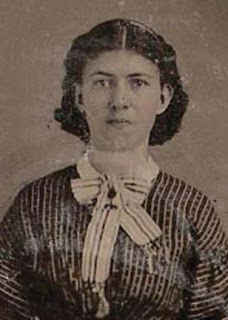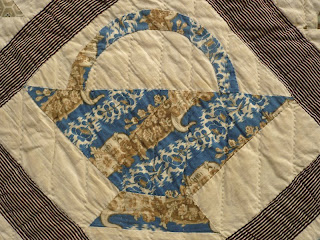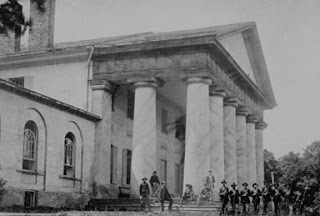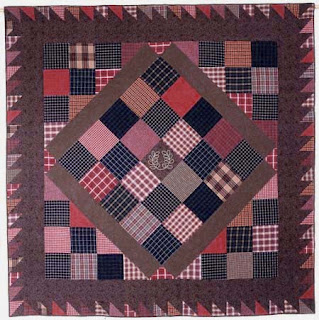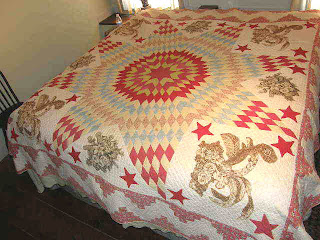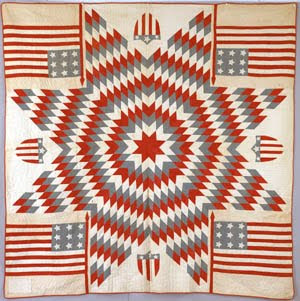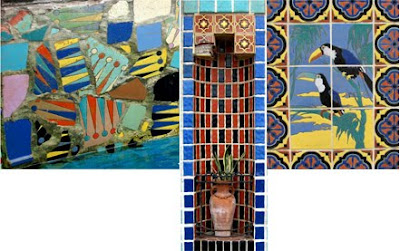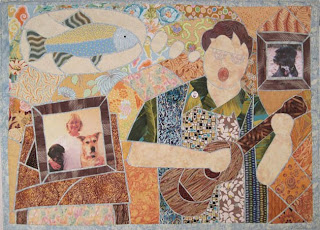January 19th is Robert E. Lee's birthday, an official holiday in a few Southern states. I grew up in Cincinnati, across the river from the South. My BFF Linda was a transplanted Kentuckian and I a transplanted New Yorker so our cultures often clashed. She celebrated Lee's Birthday.
Although I am a dyed-in-the-wool Yankee, Confederate General Robert E. Lee is one of my heroes, not for his fighting, but for his peacemaking. After reading Jay Winik's April 1865: The Month That Saved America, I realized how lucky we are to have had Lee leading the Southern troops rather than a man like Jo Shelby who refused to surrender. So many places in the world carry civil wars over many generations. We have Robert E. Lee to thank for our post-Civil-War world in which North and South manage to coexist peacefully.
Windham Fabrics printed a Grant and Lee commemorative fabric last year.
General Ulysses Grant and Lee agreed that Confederate soldiers would surrender their arms but keep their horses and mules to take home to rebuild their farms with no more consequences for the Rebellion. Lee spent his few post-War years as President of Washington College in Lexington, Virginia.
The story of Lee's wife Mary Custis Lee (1808-1873) is an American tragedy. She was a great-granddaughter of Martha Washington who grew up on a plantation in Arlington, Virginia, which she inherited right before the war.
Mary Lee, afflicted by a severe case of rheumatoid arthritis, was wheel-chair bound by the time War broke out in 1861. Union troops soon occupied Arlington.
Mary and her children sought refuge in Richmond. Union occupiers saw an opportunity to create a powerful symbol and to insult Lee by turning Arlington House's front vista into a cemetery. Arlington remains America's national military cemetery.
Arlington was Mary's family home, not Lee's, and she only saw it once more after she fled in 1861. She spent her last years on the campus of Washington College. After her husband's death in 1870, the school's name was changed to Washington and Lee University. The Virginia Military Institute has in its collection a quilt made by Mary Custis Lee and her daughters to raise money for the campus's Lee Memorial.
Lee's Medallion, Jean Stanclift, quilted by Sharyn Rigg, 2000.
Jean Stanclift stitched a quilt interpreting Mary Lee's quilt for our Sunflower Pattern Co-operative. We designed an embroidered laurel wreath for the center to honor Lee. Mary Lee's quilt was a medallion checkerboard stitched of wool and silk combination fabrics in plaids, stripes and checks, the clothing of the era. We used woven cotton plaids and stripes.
Despite her arthritis, Mary Lee made at least one other quilt. The Carter House in Franklin, Tennessee has a small silk star quilt attributed to her, Varina Davis and others. Another quilt attributed to Mary Lee is in the collection of the Kentucky Historical Society. See that wool Log Cabin by clicking here:
http://kydgi.ky.gov:2005/cdm4/browse.php?CISOROOT=/quilts
The catalog says, "There is considerable dispute" about the quilt's origins. It seems unlikely to have been made by Mary Lee who died in 1873 before the fashion for Log Cabin quilts of heavy wools began. And the symbolism of a Log Cabin (associated with Abraham Lincoln) makes one doubt she'd have chosen that pattern.
See the quilts in the collection of Arlington House by clicking here and scrolling down to quilts:
http://www.nps.gov/history/museum/exhibits/arho/imgGal.html
None are attributed in the catalog text to Mary Lee but a few are old enough.


